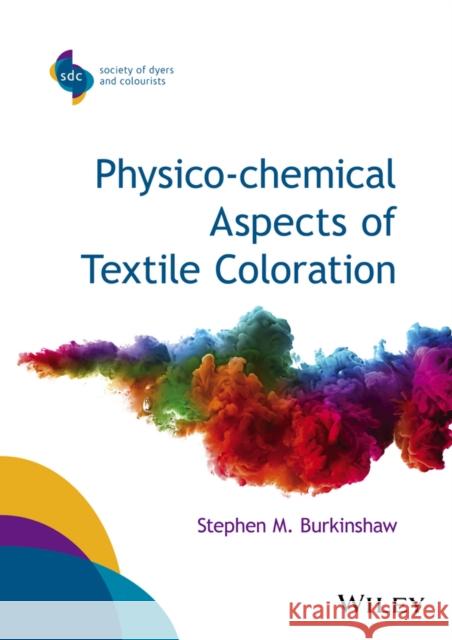Physico-Chemical Aspects of Textile Coloration » książka
Physico-Chemical Aspects of Textile Coloration
ISBN-13: 9781118725696 / Angielski / Twarda / 2016 / 640 str.
The production of textile materials comprises a very large and complex global industry that utilises a diverse range of fibre types and creates a variety of textile products. As the great majority of such products are coloured, predominantly using aqueous dyeing processes, the coloration of textiles is a large-scale global business in which complex procedures are used to apply different types of dye to the various types of textile material. The development of such dyeing processes is the result of substantial research activity, undertaken over many decades, into the physico-chemical aspects of dye adsorption and the establishment of 'dyeing theory', which seeks to describe the mechanism by which dyes interact with textile fibres.
Physico-Chemical Aspects of Textile Coloration provides a comprehensive treatment of the physical chemistry involved in the dyeing of the major types of natural, man-made and synthetic fibres with the principal types of dye. The book covers:
- fundamental aspects of the physical and chemical structure of both fibres and dyes, together with the structure and properties of water, in relation to dyeing;
- dyeing as an area of study as well as the terminology employed in dyeing technology and science;
- contemporary views of intermolecular forces and the nature of the interactions that can occur between dyes and fibres at a molecular level;
- fundamental principles involved in dyeing theory, as represented by the thermodynamics and kinetics of dye sorption;
- detailed accounts of the mechanism of dyeing that applies to cotton (and other cellulosic fibres), polyester, polyamide, wool, polyacrylonitrile and silk fibres;
- non-aqueous dyeing, as represented by the use of air, organic solvents and supercritical CO2 fluid as alternatives to water as application medium.











